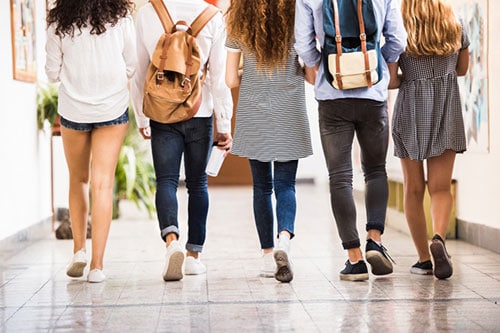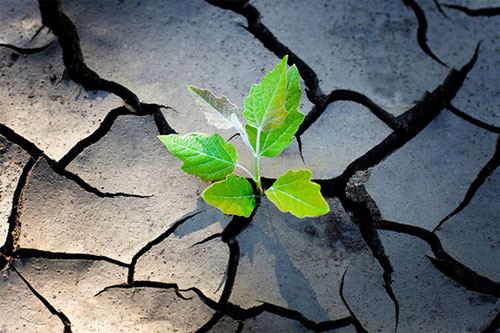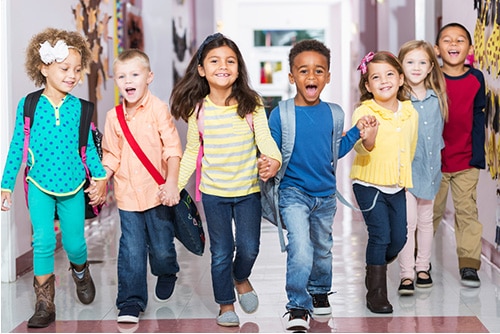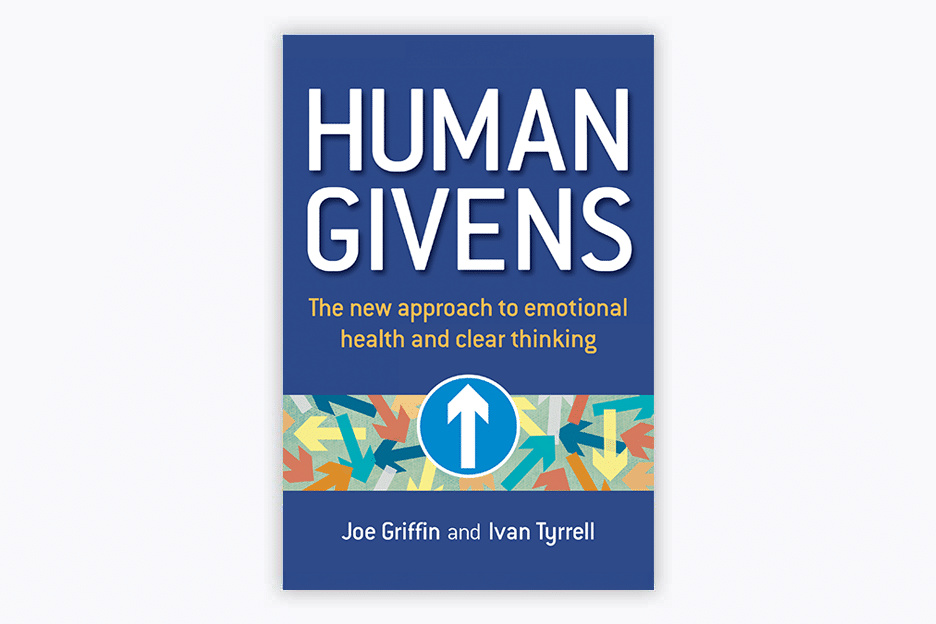Troubled young minds
Children are our future, they are the people who will continue to shape and form humanity, and yet we often fail to show them how to survive and thrive in an increasingly manic and chaotic world – perhaps because we ourselves are struggling to understand and cope with our rapidly changing reality.
While failure to help our children develop healthily can manifest through the obvious routes of instability, insecurity, neglect, abuse and abandonment, it can also be caused by quite the opposite. Hypervigilant, over-protective parents render a child helpless, unconfident, unable to get their own needs for volition, competance, achievement and status met, and therefore vulnerable to anxiety and depression.
Children need some level of volition, within which they can release their innate sense of curiosity, explore the world, and work out for themselves the tipping point between adventure and risk, fun and danger, right and wrong, with attentive parents ready to prevent catastrophe if needs be. A friend of mine used to call this, “showing them the cliff edge, whilst holding their hand”.
Perhaps because parents are too busy with life’s daily pressures (work, money etc) it has become easier to nurture our children through over-protection: an indoor, passive activity such as watching TV seems safer than outdoor adventure; the virtual computer game world seems safer than the real world; social media perfection glosses over messy reality.
Not being in touch with our natural environment causes anxiety – after all our environment is where we get our essential needs met, both physical and emotional, and our brains still need connection with nature in order to stay calm in the knowledge that we are in touch with the source of our needs (anxiety is the brain’s alarm signal for things not being right).
Social media
Another source of anxiety stems from the perfectionism depicted and shared through social media. Lives airbrushed to perfection on screen leave us all feeling a little less perfect, but for children and young people it can be devastating: if this is the world into which they need to be able to fit, feelings of inadequacy can result, which can in turn lead to the individual not daring to socialise and mix with their peers, thus curtailing their lifestyles at the very time when they should feel free to explore what the world can offer them.
If we do, and provide, everything for our children, they will never experience the resilience-building trials, errors and successes of life for themselves. If they never experience these positives and negatives, highs and lows, mistakes and successes during their developmental years, their brains don’t learn to accept that difficulties can be overcome and challenges can be met.
Adolescence
Then, when something difficult does crop up for them, often in adolescence when parents are no longer in constant attendance, a horrifying feeling of helplessness and panic can result, triggering the fight:flight survival response. If not understood, this can be labelled a mental health condition such as anxiety or depression, for which the young person might even be medicated.
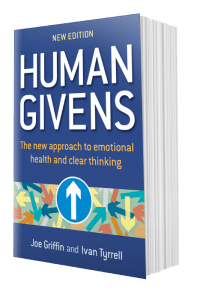
Anxiety is a huge problem for many young people today, affecting their mental health, their behaviours, and their ability to learn effectively. By taking a look at their predicament through the HG lens we can see that this is a case of not getting needs met, and of not identifying, trusting and utilising their own inbuilt resources.
If we achieve nothing else, I’d say the vital job of us adults – be we parent, guardian, teacher, mentor, coach, therapist or any other sort of guide – is to show children and teenagers that they have their own resources with which to reach out into the world and get their needs met.
That’s the greatest gift: to encourage them to learn to look after themselves, to educate them about their human givens: their essential needs and innate resources, and to reassure them that it’s OK to feel anxious sometimes – that’s the brain’s way of saying something isn’t right – and teach them how to go about homing in on what’s wrong and figuring out how to fix it.
How best to help?
Human Givens College offers several excellent courses where you can learn much more about how to help children and youngsters. Pamela Woodford, who has decades of experience working therapeutically with children and adolescents delivers How to create healing stories for children live online, and HG trained family psychotherapist Miriam Chachamu presents several helpful workshops live online including: Understanding and treating anxiety in children and teens and How to help children thrive, which focuses mainly on pre-eleven year-old children, looking at how to help them get their essential emotional needs met, as explained here:
“If society is to successfully reduce the levels of anti-social behaviour, family breakdowns, mental illness and addictions, all our children need to be raised in environments where their innate psychological needs are met.
“For children to be able to flourish and behave well, they need to feel secure, be given and receive appropriate attention, be able to delay gratification, take increasing levels of responsibility for their own behaviour, be stretched, develop a sense of autonomy and, of course, have fun!
“For all this to happen they also need to be emotionally well connected to their family, peers, school and the wider community; and be given a sense of status that reflects their effort and achievements.”
Working with an older age group, HG trained Psychological Wellbeing Counsellor Gareth Hughes offers a superb insight into the challenges and stresses of student life in his one-day course Anxiety & Learning: how to improve students’ academic performance and wellbeing.
“Growing levels of anxiety, depression and perfectionism among our school and university students – exacerbated by the increasing focus on exam results, league tables and immediate employment possibilities – is causing many students to perform well below their potential.
Stress and anxiety massively inhibit academic learning and performance. As high levels of anxiety can lead to more serious mental health problems – and even suicide – it’s imperative we give adolescents the information and skills they need to cope with the many pressures they’re under today.”
I’m sure we can all remember difficulties in our teenage years. After all it’s a time of huge change, surging hormones, shyness and frustration as we find out who we are and how we might fit into the world around us. HG trained social worker Richard Brook has devoted his working life to helping adolescents with emotional and behavioural difficulties, and their families. In his one-day course How to work effectively with troubled and troublesome teenagers, Richard immediately clarifies that ‘troublesome’ usually equals ‘troubled’ and that we must learn to listen, in order to find out what the trouble is. First showing us what healthy teenage development looks like, he then looks at why things can go wrong and the best ways to help young people overcome obstacles and begin to create lives for themselves that work well.
“By working with the ‘givens’ of human nature, and ensuring that sound knowledge of how people really function is applied intelligently to teenagers, you can speed up progress, reduce anti-social behaviour and teen depression, and bring young people real benefits.”
PC Sharon Herbert, coordinator of a uniformed youth organisation in the City of London Police found that an in-house human givens training day with Richard Brooks provided them with skills and knowledge that have proved to have a “really positive impact” on the way they work with a broad spectrum of young people, with a much deeper understanding of their difficulties. This is an excellent example of how HG training is making a real difference for our troubled youngsters.
Why do so many young people self-harm?
On the face of it, choosing to harm our own bodies seems totally irrational, but in her HG training day Overcoming Self-harm: how to reduce and prevent self-harming behaviours, HG trained NHS therapist Emily Gajewski explains the fascinating logic behind the act, as the body’s natural hormone release following injury soothes, comforts and distracts from the ongoing sources of stress in the young person’s life.
Emily goes on to explain how we all have, and use (often through ‘accepted’ behaviours such as alcohol intake) this innate mechanism to comfort ourselves and ease our stress levels. Once we learn that self-harming isn’t a condition, it’s a symptom of something else not being right in the person’s life, then acceptance, empathy, listening and finding out how to help can begin.
“You will gain a wealth of new information, proven techniques and useful tips, which will ensure you give sufferers the best chance of recovering their mental health and moving on in their lives – you will also hear from people who have been able to completely stop self-harming (or dramatically reduced it) and are now living fulfilled lives as a result of this approach.”
Help with OCD
Tutor Miriam Chachamu also delivers the HG course, Obsessive Compulsive Disorder: understanding OCD and how best to treat it. Like self-harming, OCD is a symptom of things not being right within the individual’s life, rather than being a condition in it’s own right. OCD is not only distressing for sufferers but for their family members – including children – and the condition can damage their relationships, social and work lives, and physical health.
Miriam’s workshop-day offers an in-depth look at OCD in all its guises and focuses on practical and effective methods of treatment, including demonstration videos of therapy sessions, short video clips, in-depth discussions and case studies.
All of these HG courses offer a crucial insight and invaluable information about how we can rise to the challenge of understanding and helping the troubled young minds of children of the world today, and therefore the adults of tomorrow, and society as a whole. When you click on the course links given above, you’ll find that each tutor has provided a short video about their course, and many of them also feature in our Ask the Expert podcast series, from where you can get a flavour of their great depth of knowledge and excellent teaching skills.
You may like
Get 15% OFF for you and a friend!
Recommend our courses to someone who's new to our training and you'll both receive 15% off your booking...


